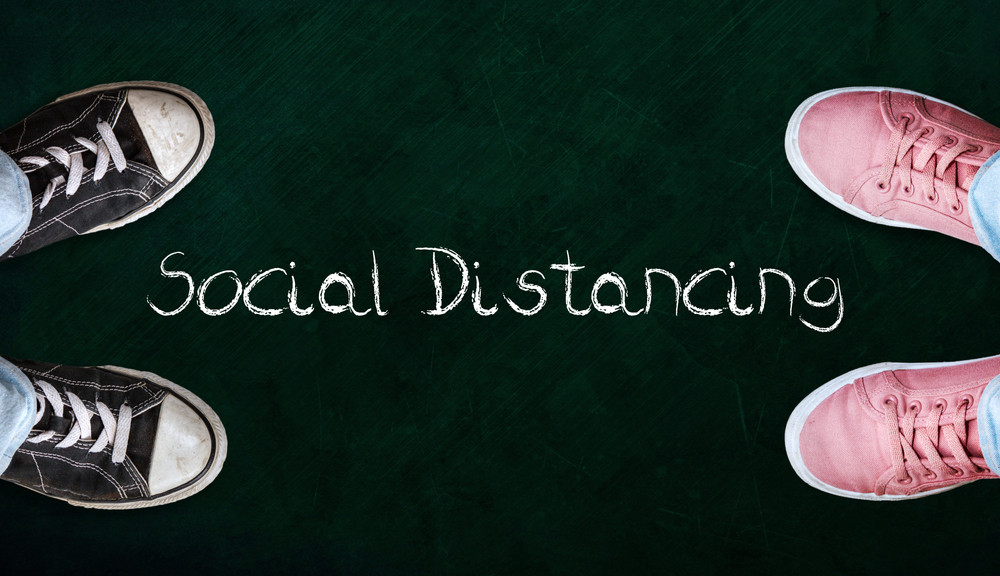Popular Reads
Top Results
Can't find what you're looking for?
View all search resultsPopular Reads
Top Results
Can't find what you're looking for?
View all search resultsCOVID-19: Social distancing still tolerable... for now
Despite the deluge of memes imagining zany situations that might arise after days of quarantine, it seems that people are still coping fine — at least, for now.
Change text size
Gift Premium Articles
to Anyone
A
s Jakarta announces a state of emergency because of the ongoing COVID-19 pandemic, millions of the metropolitan’s denizens are encouraged to stay home to prevent further transmissions.
But how are they holding up so far? Despite the deluge of memes imagining zany situations that might arise after days of quarantine, it seems that people are still coping fine — at least, for now.
For designer and university lecturer Agatha Aprillia, social distancing is a boon, as she is naturally a loner and would prefer to stay indoors.
“I’ve been doing it for a year before I started teaching. This is how my normal life works,” she said.
Agatha’s routine to stave off boredom includes endlessly scrolling through Instagram and YouTube, although she said she welcomed the fact that she could now take more naps.
Meanwhile, 24-year-old Afifa Ezi found herself with more time to exercise in the morning, which she said boosted her mood because of the endorphins, although her work-from-home had been slightly impacted because she also spent a lot of her time in bed.
However, some have found the stay-at-home policy to be rather cumbersome. Nibras Dhia, an employee at a major e-commerce site, noted that it had been an uncomfortable week for her, even though it was only day five of working from home.
Indeed, human interaction is a crucial aspect of life. Stories can be found all around the world on how a sense of community is beneficial in keeping up morale, ranging from an entire Italian neighborhood singing from their balconies to neighborhood gatherings with enforced social distancing.
Gina Anindyajati, a psychiatrist at the University of Indonesia’s School of Medicine and Cipto Mangankusumo Hospital (FKUI-RSCM), told The Jakarta Post on Monday that staying in one place for a prolonged period of time could incur a feeling of helplessness and depressive moods, aside from general boredom and loneliness.
“The feeling of socially isolated with no friends can make an individual feel alienated. If this keeps up, this can drive a feeling of frustration, as well as excessive anxiety and fear,” she said via text message.
According to Gina, one solution to the issue is by having a channel of information available to lessen the impact of isolation, as well as providing social interaction in a way that does not affect transmission of the virus.
“What is suggested is social distancing — reducing physical interactions — but not social disconnecting. Even though the individuals are physically distanced, communication between them should still run normally,” she said, adding that online platforms such as social media and messaging apps could also substitute for in-person meetings.
Meanwhile, psychologist Vittria Tattiana noted that going online could only be viable for a certain segment, as not everyone can afford an internet bill as well as the device needed.
“Indonesia is a very heterogenous country, with a wide range of people across socioeconomic and education levels. This is why treatment has to be different and cannot be done in a one-size-fits-all method,” she said, adding that education was needed first and foremost.
Both Ezi and Dhia agreed that human interaction was sorely needed in these trying times.
“Two weeks of isolation I think is OK because I honestly get anxious if I go out. I’m also at home with my family, so I have someone to talk to, and I imagine it would be worse for people who live alone,” Ezi said, adding that so far, she hadn’t felt too affected but that could change if the situation continued for more than a month.
However, Dhia is of the opinion that phone calls and video chats can never fully replace direct human interaction.
“There would be a point where it wouldn’t be enough. I don’t think anything will ever be enough of a substitute to another human’s presence, but patience does a lot for me right now,” Dhia said, adding that she would eventually have to meet people in person, although she would keep her distance, of course.











